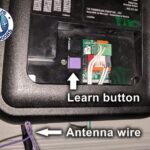Is Mtg Hard To Learn? Yes, Magic: The Gathering (MTG) can seem daunting at first, but with the right approach, anyone can master the fundamentals and enjoy this strategic card game. LEARNS.EDU.VN offers resources and strategies to simplify learning MTG, breaking down complex rules into manageable steps, making the process enjoyable and rewarding. Explore our expert tips, detailed guides, and community support to become proficient in MTG.
1. Grasping the Fundamentals of MTG
At its core, Magic: The Gathering is a trading card game where players, known as planeswalkers, cast spells, summon creatures, and utilize artifacts to defeat their opponents. To understand the game, you need to learn some basic principles, which will allow you to have a strong foundation.
1.1. Understanding the Core Mechanics
The game begins with each player drawing seven cards from their deck. A deck typically consists of at least 60 cards, combining lands, creatures, spells, and artifacts. Players take turns playing lands to generate mana, which is necessary to cast spells and summon creatures.
- Lands: Lands produce mana, the resource needed to play other cards. There are five basic land types: Plains (White mana), Island (Blue mana), Swamp (Black mana), Mountain (Red mana), and Forest (Green mana).
- Creatures: Creatures are summoned to attack the opponent and defend against attacks.
- Spells: Spells can be used for various effects, such as damaging opponents, destroying creatures, or drawing more cards.
- Artifacts: Artifacts are non-creature permanents with abilities that can enhance a player’s strategy.
1.2. The Turn Structure
Each turn in MTG follows a specific structure, ensuring fair gameplay and strategic decision-making. Understanding the phases of a turn is crucial for effective play. Here’s a breakdown:
-
Beginning Phase:
- Untap Step: Untap all permanents (lands, creatures, artifacts) you control.
- Upkeep Step: Some cards have effects that trigger during your upkeep.
- Draw Step: Draw a card from your deck.
-
First Main Phase: Play a land, cast spells, or summon creatures.
-
Combat Phase:
- Beginning of Combat Step: Some cards have effects that trigger at the beginning of combat.
- Declare Attackers Step: Choose which creatures will attack.
- Declare Blockers Step: The defending player chooses which creatures will block.
- Combat Damage Step: Damage is dealt between attacking and blocking creatures.
- End of Combat Step: Some cards have effects that trigger at the end of combat.
-
Second Main Phase: Play another land (if you haven’t already), cast spells, or summon creatures.
-
Ending Phase:
- End Step: Some cards have effects that trigger during the end step.
- Cleanup Step: Discard down to your maximum hand size (usually seven cards).
1.3. Tapping and Mana Costs
Tapping is a fundamental mechanic in MTG. To use a land or certain other permanents, you “tap” them by turning them sideways. Tapped lands produce mana, which is then used to pay the mana costs of spells and creatures. Each card displays its mana cost in the upper right corner. For example, a card with a mana cost of “2G” requires two mana of any color and one green mana to cast.
- Mana Symbols: Understanding the different mana symbols is essential. These include the five basic colors, colorless mana, and hybrid mana (mana that can be paid with either of two colors).
- Restrictions on Playing Lands: Generally, you can only play one land per turn unless a card’s ability allows you to play more.
- Untapping: At the beginning of your next turn, all your tapped permanents automatically untap, making them available for use again.
2. How to Win a Game of MTG
The primary goal in Magic: The Gathering is to reduce your opponent’s life total from 20 to 0. This can be achieved through various means, including attacking with creatures, casting direct damage spells, or utilizing cards with specific win conditions.
2.1. Reducing Opponent’s Life Total
Attacking with creatures is one of the most common ways to reduce an opponent’s life total. Each creature has an attack and defense stat, represented as [X,X] on the card.
- Declaring Attackers: During your combat phase, you can choose to attack with any number of your creatures.
- Declaring Blockers: The defending player then chooses which creatures, if any, will block the attacking creatures.
- Combat Damage: If an attacking creature is not blocked, it deals damage equal to its attack stat to the defending player, reducing their life total. If it is blocked, the attacking and blocking creatures deal damage to each other.
2.2. Dealing with Blockers
Blocking is a crucial defensive tactic. When an attacking creature is blocked, the blocker absorbs the damage, preventing it from hitting the defending player. Understanding how to deal with blockers is essential for a successful attack.
- Trample: Some creatures have the Trample ability, which means that if their attack is higher than the defender’s defense stat, the excess damage is dealt to the defending player.
- First Strike and Double Strike: Creatures with First Strike deal damage before creatures without it. Creatures with Double Strike deal damage both at the beginning and during the regular combat damage step.
2.3. Alternative Win Conditions
Besides reducing your opponent’s life to zero, there are alternative win conditions in MTG. Some cards have abilities that allow you to win the game instantly if certain conditions are met.
- Decking: If a player is required to draw a card from their deck and there are no cards left, they lose the game.
- Specific Card Abilities: Certain cards like “Laboratory Maniac” allow you to win the game if you would draw a card while your library is empty.
3. Understanding Card Abilities
Magic: The Gathering cards often have abilities that can significantly impact the game. These abilities can be static, triggered, or activated, and understanding them is crucial for effective play.
3.1. Static Abilities
Static abilities are always active and affect the card as long as it is on the battlefield. These abilities don’t need to be activated or triggered; they simply exist.
- Flying: A creature with Flying can only be blocked by creatures with Flying or Reach.
- Trample: As mentioned earlier, Trample allows excess damage to be dealt to the defending player.
- Vigilance: A creature with Vigilance does not tap when it attacks, allowing it to be available for blocking on the opponent’s turn.
3.2. Triggered Abilities
Triggered abilities activate when a specific event occurs. These abilities are often indicated by phrases like “When,” “Whenever,” or “At.”
- “When this creature enters the battlefield…”: This triggers as soon as the creature is played.
- “Whenever you cast a spell…”: This triggers each time you cast a spell.
- “At the beginning of your upkeep…”: This triggers at the beginning of each of your turns.
3.3. Activated Abilities
Activated abilities require you to pay a cost (mana, tapping, sacrificing a creature, etc.) to activate the effect. These abilities are written in the format “Cost: Effect.”
- {T}: Add one green mana to your mana pool.: Tapping the land adds green mana.
- 2R, {T}: This creature deals 1 damage to target creature or player.: Paying two generic mana and one red mana, then tapping the creature, deals 1 damage.
4. Advanced Strategies and Deck Building
Once you have a solid grasp of the basic mechanics and card abilities, you can start exploring advanced strategies and deck-building techniques.
4.1. Understanding Archetypes
MTG decks often fall into certain archetypes, each with its own strategy and play style. Understanding these archetypes can help you build more effective decks and anticipate your opponent’s moves.
- Aggro: Aggro decks aim to quickly reduce the opponent’s life total by playing aggressive creatures and spells early in the game.
- Control: Control decks focus on disrupting the opponent’s strategy and controlling the board with counterspells, removal spells, and powerful late-game threats.
- Midrange: Midrange decks aim to strike a balance between aggro and control, playing efficient creatures and spells at every stage of the game.
- Combo: Combo decks rely on assembling a specific combination of cards to win the game in a single turn.
4.2. Mana Curve
The mana curve refers to the distribution of mana costs in your deck. A well-balanced mana curve ensures that you have spells and creatures to play at every stage of the game.
- Low Mana Curve: Decks with a low mana curve are typically aggressive, focusing on playing cheap, efficient threats early in the game.
- High Mana Curve: Decks with a high mana curve are typically control-oriented, focusing on surviving the early game and playing powerful late-game spells.
4.3. Card Advantage
Card advantage refers to having more cards than your opponent. Drawing additional cards, destroying your opponent’s cards, and reusing cards from your graveyard are all ways to gain card advantage.
- Draw Spells: Spells like “Brainstorm” and “Ponder” allow you to draw additional cards.
- Removal Spells: Spells like “Lightning Bolt” and “Swords to Plowshares” destroy your opponent’s creatures, reducing their resources.
- Graveyard Recursion: Cards like “Reanimate” and “Eternal Witness” allow you to bring cards back from your graveyard, giving you additional resources.
5. Overcoming Common Challenges
Learning MTG can be challenging, especially when dealing with complex card interactions and strategic decision-making. However, with the right approach and resources, you can overcome these challenges and become a skilled player.
5.1. Dealing with Complex Card Interactions
Many MTG cards have complex text that can be difficult to understand. Reading the cards carefully and asking for clarification from experienced players can help.
- Read Carefully: Pay close attention to the wording of the card. Even small details can have a big impact on how the card works.
- Ask for Help: Don’t be afraid to ask for clarification from experienced players or judges. They can help you understand complex card interactions and rulings.
5.2. Managing Your Resources
Mana management is crucial in MTG. You need to ensure that you have enough mana to cast your spells and summon your creatures, but you also need to avoid flooding yourself with too much mana.
- Land Ratio: Aim for a balanced land ratio in your deck, typically around 35-40% lands.
- Mana Ramp: Use mana ramp spells and creatures to accelerate your mana production.
- Mana Sinks: Include cards with activated abilities or effects that can use excess mana.
5.3. Adapting to Different Play Styles
MTG is a diverse game with many different play styles. Learning to adapt to different play styles is essential for success.
- Identify Your Opponent’s Strategy: Pay attention to the cards your opponent plays and try to identify their overall strategy.
- Adjust Your Play Style: Adapt your play style to counter your opponent’s strategy. If they are playing an aggressive deck, focus on defense. If they are playing a control deck, try to apply early pressure.
6. Resources for Learning MTG
There are many resources available to help you learn and improve your MTG skills. These resources include online tutorials, forums, and local game stores.
6.1. Online Tutorials and Guides
Websites like LEARNS.EDU.VN offer detailed guides and tutorials on MTG. These resources cover everything from the basic rules to advanced strategies.
- LEARNS.EDU.VN: Explore our articles and guides to deepen your understanding of MTG.
- Wizards of the Coast: The official MTG website offers rules, articles, and other resources.
- MTGGoldfish: This website provides deck lists, articles, and videos on MTG strategy.
6.2. Forums and Communities
Online forums and communities are great places to ask questions, discuss strategies, and connect with other MTG players.
- Reddit: The MTG subreddit is a popular forum for discussing all things MTG.
- MTGSalvation: This website offers forums, articles, and deck lists for MTG players.
6.3. Local Game Stores
Local game stores (LGS) are great places to play MTG, meet other players, and learn from experienced players.
- Friday Night Magic (FNM): Many LGSs host FNM events, which are casual tournaments for players of all skill levels.
- Drafts and Sealed Events: These events involve building a deck from a limited pool of cards, providing a great way to learn about different cards and strategies.
7. Staying Updated with the Latest Sets and Rules
Magic: The Gathering is a constantly evolving game, with new sets and rules changes being released regularly. Staying updated with the latest information is essential for competitive play.
7.1. New Set Releases
Wizards of the Coast releases new MTG sets several times a year. Each set introduces new cards, mechanics, and themes.
- Spoiler Season: Before a new set is released, Wizards of the Coast previews some of the new cards. This is known as spoiler season.
- Set Reviews: Many websites and content creators offer set reviews, analyzing the new cards and mechanics.
7.2. Rules Changes and Errata
Sometimes, Wizards of the Coast makes changes to the MTG rules or issues errata for specific cards. Staying informed about these changes is important for playing the game correctly.
- Official Rulebook: The official MTG rulebook is available on the Wizards of the Coast website.
- Judge Rulings: Judges are experts on the MTG rules. Their rulings are often published online.
8. MTG Arena and Digital Platforms
MTG Arena is a digital platform that allows you to play Magic: The Gathering online. It’s a great way to learn the game, practice your skills, and compete against other players.
8.1 Benefits of MTG Arena
MTG Arena offers several benefits for both new and experienced players:
- Accessibility: Play MTG anytime, anywhere with an internet connection.
- Tutorials: MTG Arena provides interactive tutorials that guide you through the basics of the game.
- Automated Rules Enforcement: The game enforces the rules automatically, preventing you from making illegal moves.
- Collection Building: Earn cards and build your collection by playing the game and completing quests.
8.2. Tips for Using MTG Arena
Here are some tips for getting the most out of MTG Arena:
- Complete the Tutorials: The tutorials are a great way to learn the basics of the game.
- Play Ranked Games: Ranked games allow you to test your skills against other players and climb the ladder.
- Participate in Events: MTG Arena offers a variety of events, such as drafts, sealed events, and constructed tournaments.
9. The Social Aspect of MTG
Magic: The Gathering is more than just a game; it’s a community. Connecting with other players can enhance your enjoyment of the game and help you improve your skills.
9.1. Playing with Friends
Playing MTG with friends is a great way to socialize and have fun. You can play casual games, build decks together, and compete in friendly tournaments.
9.2. Joining a Playgroup
A playgroup is a group of players who meet regularly to play MTG. Joining a playgroup can provide you with a consistent group of opponents and a supportive community.
9.3. Attending Events
Attending MTG events, such as Friday Night Magic (FNM) and Grand Prix tournaments, is a great way to meet other players, test your skills, and win prizes.
10. FAQ: Is MTG Hard to Learn?
Here are some frequently asked questions about the difficulty of learning Magic: The Gathering.
-
Is MTG hard to learn for beginners?
- Yes, MTG can seem complex at first due to its many rules and card interactions. However, focusing on the fundamentals and gradually learning more advanced concepts can make it manageable.
-
How long does it take to learn MTG?
- You can grasp the basics in a few hours, but mastering the game takes time and practice. Expect to spend several weeks or months to become proficient.
-
What is the best way to learn MTG?
- Start with the basic rules, play introductory games, and gradually learn more advanced strategies. Online tutorials, local game stores, and experienced players can be valuable resources.
-
Is MTG more complex than other card games?
- Yes, MTG is generally considered more complex than many other card games due to its vast card pool and intricate rules.
-
Do I need to be good at math to play MTG?
- Basic math skills are helpful, but you don’t need to be a math expert. The game involves calculating damage, mana costs, and card interactions, but these are typically straightforward.
-
Can I learn MTG online?
- Yes, there are many online resources, including tutorials, videos, and online platforms like MTG Arena, that can help you learn the game.
-
Is MTG expensive to play?
- MTG can be expensive, especially if you want to build competitive decks. However, you can also play casually with budget-friendly decks or participate in limited formats like drafts.
-
What are the most challenging aspects of MTG to learn?
- Some of the most challenging aspects include understanding complex card interactions, managing resources effectively, and adapting to different play styles.
-
How important is deck building in MTG?
- Deck building is crucial in MTG. A well-constructed deck can significantly increase your chances of winning. Understanding deck archetypes, mana curves, and card synergy is essential.
-
Where can I find people to play MTG with?
- You can find people to play with at local game stores, online platforms like MTG Arena, and through online communities and forums.
11. MTG: Education and Cognitive Benefits
MTG is more than just a game; it can be a valuable tool for education and cognitive development. The game requires strategic thinking, problem-solving, and decision-making skills, which can benefit players of all ages.
11.1. Strategic Thinking
MTG requires players to think several steps ahead, anticipate their opponent’s moves, and plan their own strategy accordingly. This can help improve strategic thinking skills, which are valuable in many areas of life.
11.2. Problem-Solving
Each game of MTG presents a unique set of challenges that players must overcome. This can help improve problem-solving skills, as players must analyze the situation, identify potential solutions, and implement the best course of action.
11.3. Decision-Making
MTG requires players to make countless decisions throughout the game, from choosing which cards to play to deciding when to attack or defend. This can help improve decision-making skills, as players must weigh the risks and rewards of each decision.
12. MTG and Neuroplasticity
Neuroplasticity refers to the brain’s ability to reorganize itself by forming new neural connections throughout life. Engaging in mentally stimulating activities like MTG can promote neuroplasticity, leading to improved cognitive function and memory.
12.1. Enhancing Cognitive Flexibility
MTG requires players to adapt to changing circumstances and think outside the box. This can enhance cognitive flexibility, which is the ability to switch between different mental tasks and adapt to new situations.
12.2. Improving Working Memory
Working memory is the ability to hold information in mind and manipulate it to complete a task. MTG requires players to keep track of multiple variables, such as card abilities, mana costs, and opponent’s life total. This can help improve working memory.
12.3. Stimulating Creativity
MTG encourages players to experiment with different strategies and deck-building techniques. This can stimulate creativity and help players develop new ways of thinking about problems.
13. MTG and Community Engagement
Participating in MTG events and interacting with other players can foster a sense of community and belonging. This can have positive effects on mental health and well-being.
13.1. Building Social Connections
Playing MTG provides opportunities to meet new people and build lasting friendships. These social connections can provide support and companionship, which are essential for mental health.
13.2. Fostering Collaboration
MTG can be played in teams, which requires players to collaborate and work together to achieve a common goal. This can help improve teamwork skills and foster a sense of camaraderie.
13.3. Promoting Respect
MTG players are expected to treat each other with respect and follow the rules of the game. This can promote respect and sportsmanship, which are important values in any community.
14. Table: Trends and Updates in MTG Learning Resources
| Resource Type | Description | Recent Trends |
|---|---|---|
| Online Tutorials | Websites, videos, and interactive platforms that guide new players through the rules and strategies of MTG. | Increased use of interactive tutorials and gamified learning experiences. More content tailored to specific learning styles. Mobile-friendly resources are becoming more prevalent. |
| Local Game Stores (LGS) | Physical stores that host MTG events, sell cards, and provide a space for players to meet and play. | LGSs are offering more beginner-friendly events and workshops. Many stores are using online platforms to promote events and connect with players. Community building is becoming a greater focus for LGSs. |
| Digital Platforms | Online platforms like MTG Arena that allow players to play MTG digitally, providing automated rules enforcement and a virtual collection. | Digital platforms are becoming more accessible and user-friendly. Integration with streaming services and social media is increasing. AI-powered coaching and personalized learning experiences are emerging. |
| Mobile Apps | Apps that provide MTG-related tools and information, such as card databases, deck builders, and life counters. | Mobile apps are becoming more sophisticated, offering features like augmented reality card scanning and AI-powered deck analysis. Integration with online communities and forums is increasing. Gamified learning experiences are being incorporated into mobile apps. |
| Educational Content | Books, articles, and courses that delve deeper into MTG strategy, deck building, and game theory. | Increased focus on data-driven analysis and evidence-based strategies. More content tailored to specific formats and play styles. Collaboration between MTG experts and educators is growing. Emphasis on cognitive benefits and educational applications of MTG. |
| Community Engagement | Forums, social media groups, and online communities where MTG players can connect, share information, and ask questions. | Online communities are becoming more inclusive and welcoming to new players. Increased use of social media for sharing tips and strategies. Mentorship programs and buddy systems are emerging to support new players. Emphasis on positive and respectful communication within online communities. |
| Professional Coaching | One-on-one coaching services that provide personalized guidance and feedback to MTG players. | More affordable coaching options are becoming available. Increased use of video analysis and screen sharing in coaching sessions. Coaches are specializing in specific formats and play styles. Emphasis on building a strong coach-player relationship based on trust and respect. |
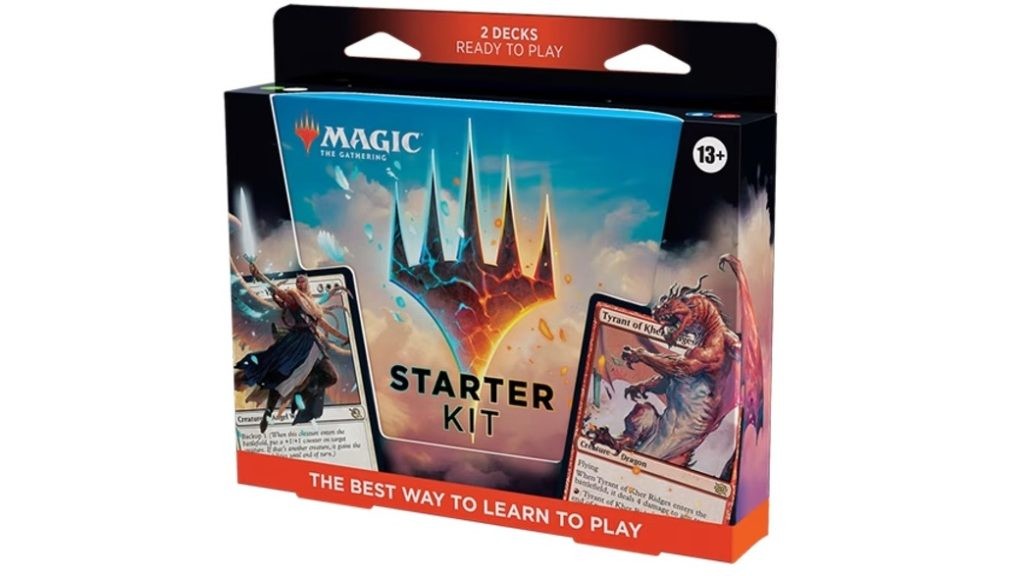
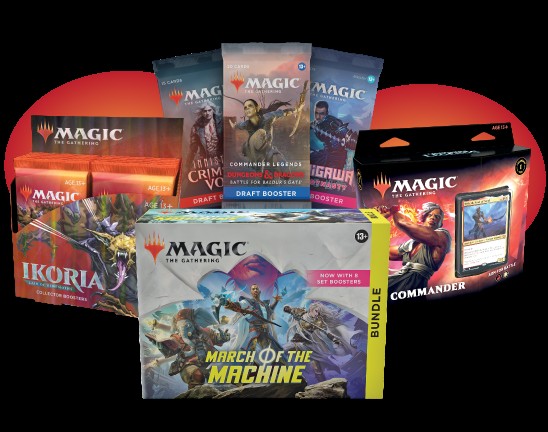
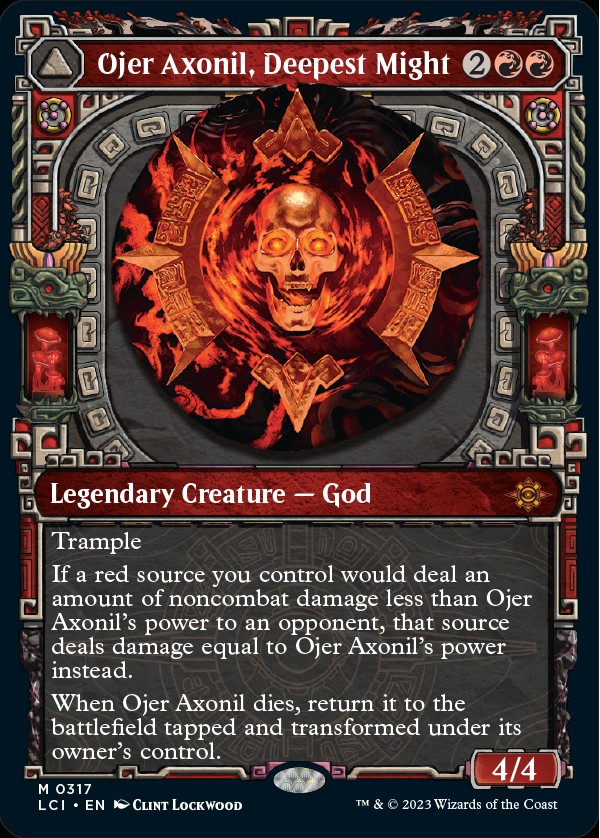
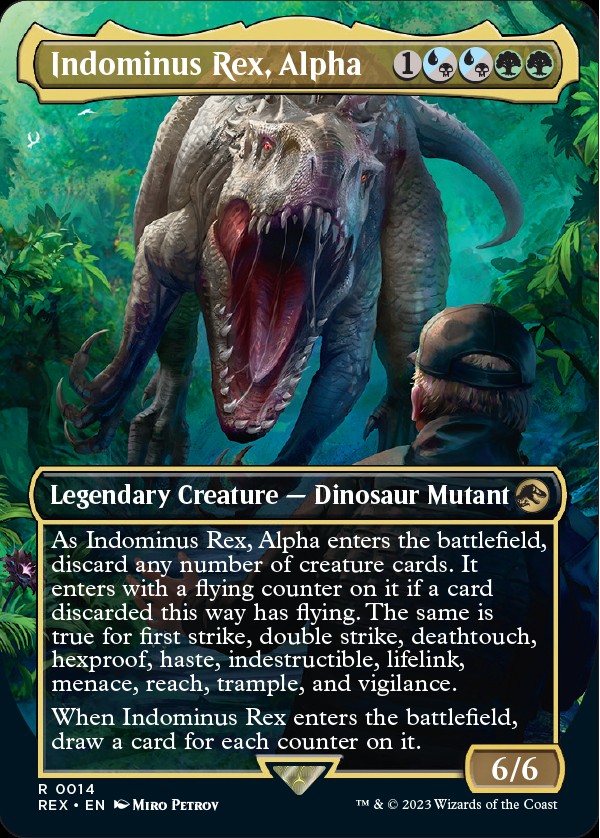
15. Conclusion: Embracing the Challenge of MTG
Magic: The Gathering can be challenging to learn, but it’s also incredibly rewarding. With its deep strategy, diverse card pool, and vibrant community, MTG offers endless opportunities for learning, growth, and fun. By mastering the fundamentals, exploring advanced strategies, and staying updated with the latest developments, you can become a skilled and successful MTG player.
Ready to embark on your MTG journey? Visit LEARNS.EDU.VN for comprehensive guides, expert tips, and resources to help you master the game. Whether you’re a beginner or an experienced player, we have something for everyone. Join our community of passionate learners and start exploring the exciting world of Magic: The Gathering today!
Contact us:
Address: 123 Education Way, Learnville, CA 90210, United States
Whatsapp: +1 555-555-1212
Website: learns.edu.vn
